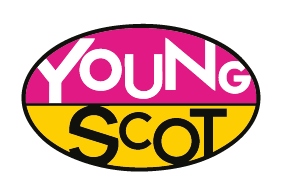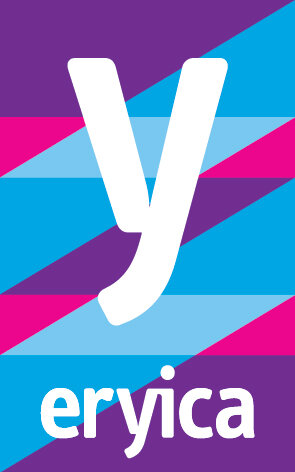Information Literacy
European Youth Information Quality Label
We firmly believe that there is no youth participation without youth information – and access to quality-assured information helps young people to build resilience, confidence and a sense of community.
The right to quality-assured and accurate information is a fundamental digital literacy right of young people – and the need is growing significantly due to emerging and evolving artificial intelligence (AI) technology that is developing amidst the surge of misinformation, fake news and post-truth narrative in our society.
At Young Scot, we are proud to hold the European Youth Information Quality Label which is administered by ERYICA and certifies the processes we have in place when creating information for young people
As Scotland’s national youth information agency, we work hard to:
provide reliable, accurate and understandable information.
offer access to different sources and channels of information and support.
give an overview of the options and possibilities available on all relevant topics.
ensure that young people are aware of all their rights and services available to them and how to access them.
provide support around information literacy - evaluating information and identifying its quality.
guide and support young people to make informed decisions and choices.
offer a multi-channel approach to support young people in their search for information and knowledge.
Information in the 21st Century
The rapid growth of AI and other digital technologies is dramatically changing how information is produced. Young people are not only information users – but information producers and multipliers too.
Youth information plays a crucial role in assisting young people to identify and evaluate the reliability of what they read. Supporting them with critical information skills as new technology emerges – such as AI and chatbots – has never been more important.
The United Nations Convention on the Rights of the Child (UNCRC) is a legally binding international agreement setting out the civil, political, economic, social and cultural rights of every child. We are committed to ensuring the UNCRC is at the heart of everything we do – with many of the rights aligning with the services that we provide for young people – including how we deliver quality information to young people.
Article 17: Every child has the right to reliable information from a variety of sources, and governments should encourage the media to provide information that children can understand. Governments must help protect children from materials that could harm them. - United Nations Convention on the Rights of the Child (UNCRC)
Information Literacy at Young Scot
In response to the challenges of a changing media and information environment, we have a quality standard for assessing all our information that has been accredited by the European Youth Information Quality Label, including
Utility – determining the usefulness and relevance of the information to its intended user.
Objectivity – ensuring our information is presented in an accurate, clear, complete, and unbiased manner and in a proper context.
Integrity - the protection of information from unauthorised access or revision and to ensure that the information is not compromised through bias or falsification.
Transparency – how information is sourced, created, shared and funded.
Dissemination – the information is capable of being shared in a wide range of accessible formats on multiple platforms and is easily replicable for users.
This approach is embedded in our day-to-day work. Some of the practical ways we achieve this are:
We hold daily stand-ups to discuss news, events and trends that impact young people’s lives and discuss how to respond.
We have a strict editorial process that helps us ensure that information is fact-checked and up to date.
We deliver our information in the digital spaces young people spend their time in – Snapchat, Facebook, TikTok, Instagram and YouTube.
We co-design our information content with young people, ensuring their needs, views and ideas are included.
We work with experts and partners to provide young people with a range of views, the opportunity to ask questions and have access to expert information and advice.
We are a member of the European Youth Information and Counselling Agency (ERYICA) and we are subscribed to the European Youth Information Charter.
European Youth Information and Counselling Agency
We are a member of the European Youth Information and Counselling Agency (ERYICA) and holder of their European Youth Information Quality Label – which recognises the processes we have in place to create information for young people.
ERYICA is a network of youth information organisations across Europe. It works to intensify European and international cooperation in the field of youth information work and services, developing, supporting and promoting quality generalist youth information policy and practice at all levels in order to meet the information needs of young people and to apply the principles of the European Youth Information Charter.
European Youth Information Charter
Our Young Scot information is accredited by the European Youth Information Charter and its nine principles:
Independent
Information offered is comprehensive, provides an overview of different options available and is based on pluralist and verified sources.
Information offered is independent of any religious, political, ideological or commercial influence.
Sources of funding for youth information do not compromise the application of any of the principles of the Charter.
Accessible
Youth information services guarantee equality of access.
Youth information centres and services are easily accessible, attractive and visible to young people.
Youth information is understandable for young people.
Inclusive
Youth information services are open to all young people without any form of discrimination.
Youth information services are free of charge for all young people.
Youth information centres and services strive to reach out to all young people, in ways that are effective and appropriate to different groups and needs.
Needs-based
Youth information services are based on the needs of young people.
Information available covers all topics that matter to young people.
Each user is respected as an individual and the response to each question is personalised in ways that are effective and appropriate.
Youth information structures have enough human resources in order to guarantee personalised support and services.
Empowering
Youth information services empower young people and foster their autonomy.
Youth information services provide young people with media and information literacy skills to act in a safe and responsible way.
Youth information services promote active citizenship and participation.
Participative
Young people participate in the production, dissemination and evaluation of youth information, at different levels and in different forms.
Youth information services offer platforms for peer-to-peer activities.
Young people are encouraged to give feedback as an integrated part of the ongoing development of youth information services.
Ethical
Youth information services respect young people’s right to privacy, confidentiality and anonymity. Youth information services provide a safe environment for young people.
Criteria for selecting information are made public and understandable. The author and the purpose of the
information are clear and visible.
All information produced or disseminated is accurate, complete, up-to-date and verified.
Professional
Youth information services are provided in a professional manner by trained sta .
Youth information workers have media and information literacy skills.
Youth information services co-operate with relevant stakeholders in order to identify needs, look for synergies, share expertise and make youth information visible.
Youth Information workers cooperate at local, regional, national, European and international level and share best practices and knowledge.
Youth information workers ensure that young people have knowledge and skills to use the digital services targeted to them.
Proactive
Youth information services are innovative in their choice of strategies, methods and tools to reach out to young people.
Youth information workers are aware of new developments, relevant laws and keep themselves informed about trends among young people.
Youth information workers are proactive players in the media and information landscape to ensure quality youth information is visible.



